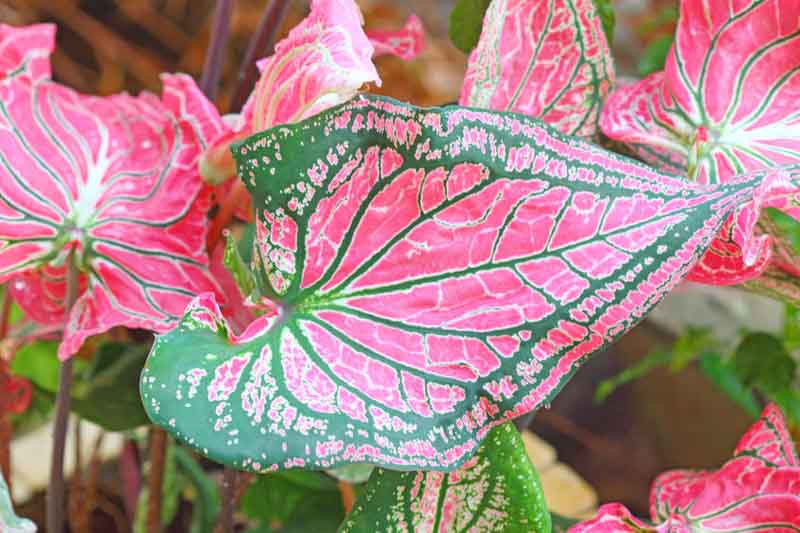Caladium (Angel Wing)
Caladiums are tropical tuberous perennials native to South America, prized for their colorful, showy foliage. They are hardy in USDA zones 9-12 and can also be grown as annuals in colder climates. Caladiums prefer well-drained, moist soil and partial shade, making them ideal for planting under trees or in a shaded garden spot.
Caladiums come in a wide range of sizes, from dwarf varieties that are less than 12 inches (30 cm) tall to giant cultivars that can grow up to 30 inches (75 cm) tall. They have heart-shaped or arrowhead-shaped leaves that can be solid-colored, speckled, or veined, and come in shades of green, pink, white, red, and yellow. Their foliage is their main attraction and can last from spring until fall.
Caladiums are commonly used as accent plants, groundcovers, container plants, and as indoor houseplants. They can also be used as cut flowers in floral arrangements. Their stunning foliage can add a pop of color to any garden, patio, or balcony.
Aside from their aesthetic value, caladiums also have a number of benefits. They can help purify the air in your home, removing toxins such as formaldehyde, benzene, and xylene.
Caladiums are relatively low-maintenance plants, requiring only consistent moisture, partial to full shade, and occasional fertilization. They do not have many pest or disease problems, making them an easy choice for gardeners of all skill levels.
Despite their many benefits, caladiums do have some potential drawbacks. They are toxic to pets and humans if ingested, so care must be taken when planting them around curious animals or small children.
While no plant is completely deer or rabbit-proof, Caladiums are not a preferred food source for these animals. Their toxicity makes them less appealing to deer and rabbits, so they are less likely to be damaged by these garden pests.
Overall, caladiums are a beautiful and versatile addition to any garden. With their striking foliage and various uses and benefits, they are sure to add interest and excitement to any space.

